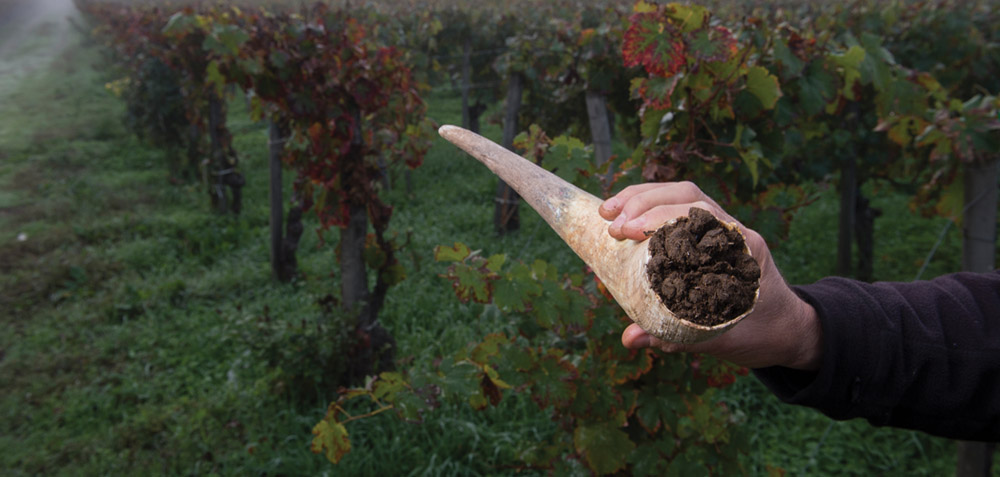Elodie Cameron, from Thirsty, looks into the sorcerous world of biodynamic wines
All sorts of phrases are bandied around about wine; organic, old vines, natural, terroir to name a few, and of course, probably strangest of all to decipher: biodynamics. All of us who enjoy wine like a story, and also want to feel we are getting value for our money. But on occasion, some of these terms – which should help to explain what we are paying for – are in fact having the absolute opposite effect. For many, these words and phrases complicate choice and make wine appear ever more stuffy and unapproachable unless you are ‘in the trade’ (as those who are dedicated professionally to the business refer to themselves).
The question is: should we just ignore these terms and continue to focus on the names and wines we already know? In fact, there is plenty in this kind of terminology that really does offer us customers an answer to quality and choice, but sometimes those ‘in the trade’ do get overexcited, perhaps so much so that we forget to go back and explain what we are talking about.
Back to biodynamics. The wine critic Jamie Goode summed it up nicely when he described it as a ‘super-charged system of organic farming’, but this is a philosophy and approach to farming that necessitates everything being in balance. Each element works together for the benefit of the plant and therefore the fruit, with the centre of this system being soil health. All aspects of the ‘system’ or farm must be taken into account.
Some raise an eyebrow on first exposure to biodynamic practices and see it as mumbo jumbo that hints at witchery. Why would you make mixes and powders made from animal horns to scatter on the soil and pick by the phases of the moon? But is it so ridiculous? The moon clearly has a huge impact on the earth; its magnetic pull affects water, plants and animals.
Equally it is clear that mixes scattered onto vineyards are full of minerals and nutrients beneficial to the soil. Biodynamics seeks to help us get closer to these natural phases, understand and use them to maintain balance in our farming techniques, allowing us to live in better harmony with our surroundings. The result being better quality fruit (with character and flavour) and greater sustainability of farmland and our relationship with the earth. In effect, a totally holistic system.
But does it work and can we see a difference? Essentially, does this have a positive effect on wine and is it worth the time and energies of our dedicated and passionate winemakers? It is clear winemakers are extraordinary people; biologists, ecologists, chemists, farmers and often totally focused, passionate people who love making wine. They don’t make wine by mistake.
They are rigorous in their approach to many aspects of their grape growing and winemaking (even the bits where they let nature do its thing). Great winemakers consistently push boundaries and do not rest on their laurels. Back in 1924 Rudolf Steiner gave a series of agricultural lectures about his concept of ‘spiritual agriculture’, and so biodynamics was born. Later, in 1997, Anne-Claude Leflaive, of renowned Burgundian wine estate Domaine Leflaive, showed two wines blind to a group of 13 members of the trade and 12 favoured the same one – and the preferred variety was biodynamic wine.
This was only one of many such observations. It appears that when the soil is in good health and the agricultural system is in balance, this creates grapes with a ripeness and sugar content which means that the resulting wine has the correct balance between flavour and alcohol content. The result – wines with clearer, more vibrant flavours that drink for longer. It seems simple after all. Meticulous attention to detail and care do matter and whether you believe in this spirituality or not, one thing is clear: the wines taste good.
Two to try
Domaine Des Potiers, Référence, 2015, Loire £13.70
Made from the Gamay grape this wine shows an abundance of red fruits; strawberry, cherry, raspberry and blackcurrant. This light red wine has a soft and rounded mouthfeel with gentle tannins. Minerality comes through from the granitic soils giving the wine grace and elegance.
Domaine Rouge-Bleu, Mistral, 2014, Rhone £18
This Cotes du Rhone Villages offers black fruits and warm spices. Blackberries evolve into roasted coffee notes and the well-structured tannins make this a wine that is both full bodied and sophisticated.

